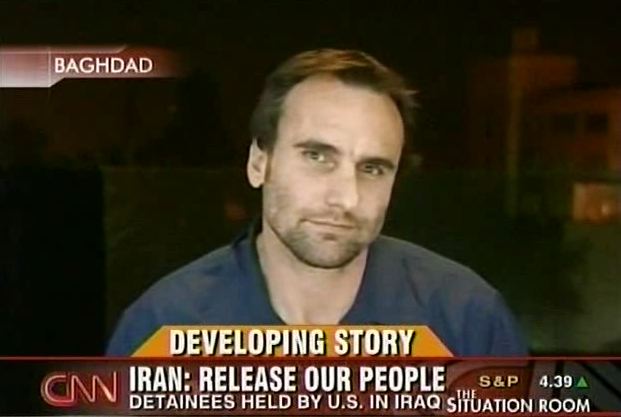TSR: "...to avoid a loss of face."

Click photo to play
Length: 3:00
SUZANNE MALVEAUX: An international crisis avoided, and the captives are now free. More on our top story: those Britons who are out of Iran and now back home. Their case is focusing attention on the plight of other people being held.
Michael Ware in Baghdad, thank you so much for joining us here in THE SITUATION ROOM. Michael, a lot of attention being paid to the British sailors and marines that were released today, those 15 hostages from Iran. But there are also members of the Iranian Revolutionary Guard that are in custody of U.S. military inside Iraq. Why is it so important to the Iranian government that they be released? Because, already, President Bush says they will not. There's no quid pro quo here.
MICHAEL WARE, CNN CORRESPONDENT: Yes, well, for the Iranian government, these men represent the best of their best. These are Iranian Revolutionary Guards corps, Quds Force officers. This is their front line, their ideological tip of the spear. Think American Green Beret with a dash of CIA paramilitary, and a little bit of Delta Force operator.
Of an entire Revolutionary Guard force of 120,000-odd, there's only 600 or 700 field officers from the Quds Force. So these are their professionals.
Already, their networks would have been cauterized. So whatever information they had would now be stale. But it's vital for the Iranian regime to get these men back at some point, to avoid a loss of face. Just as it was for British Prime Minister Tony Blair to get his marines and sailors back.
And we don't need to focus too much on a quid pro quo for these Quds Force officers. Let's remember that an Iranian diplomat went missing mysteriously off the streets of Baghdad earlier this year, and just as mysteriously, this Iranian diplomat reappeared on the eve of the release of these British sailors and marines.
MALVEAUX: Well, the Iranian government is also asking at least to be able to see these individuals in U.S. custody. How successful, how likely do you think that that's going to be able to happen?
WARE: I think that would be extremely unlikely in all the circumstances, and certainly in the ordinary course of events.
When prisoners are taken from an opposing force, one generally doesn't allow them to, you know, make contact with that opposing force and their commanders. This is where agencies like the Red Cross, for example, come into play, or perhaps intermediaries from third countries or third parties.
So, whether there will be direct face to face contact between these captured operatives and their commanders -- I think that's most unlikely.
MALVEAUX: And Michael, we also heard from Secretary of Defense Gates who said at least there will be no official channels to make that happen. So, Michael Ware, thank you so much from Baghdad.
WARE: Thank you, Suzanne.
